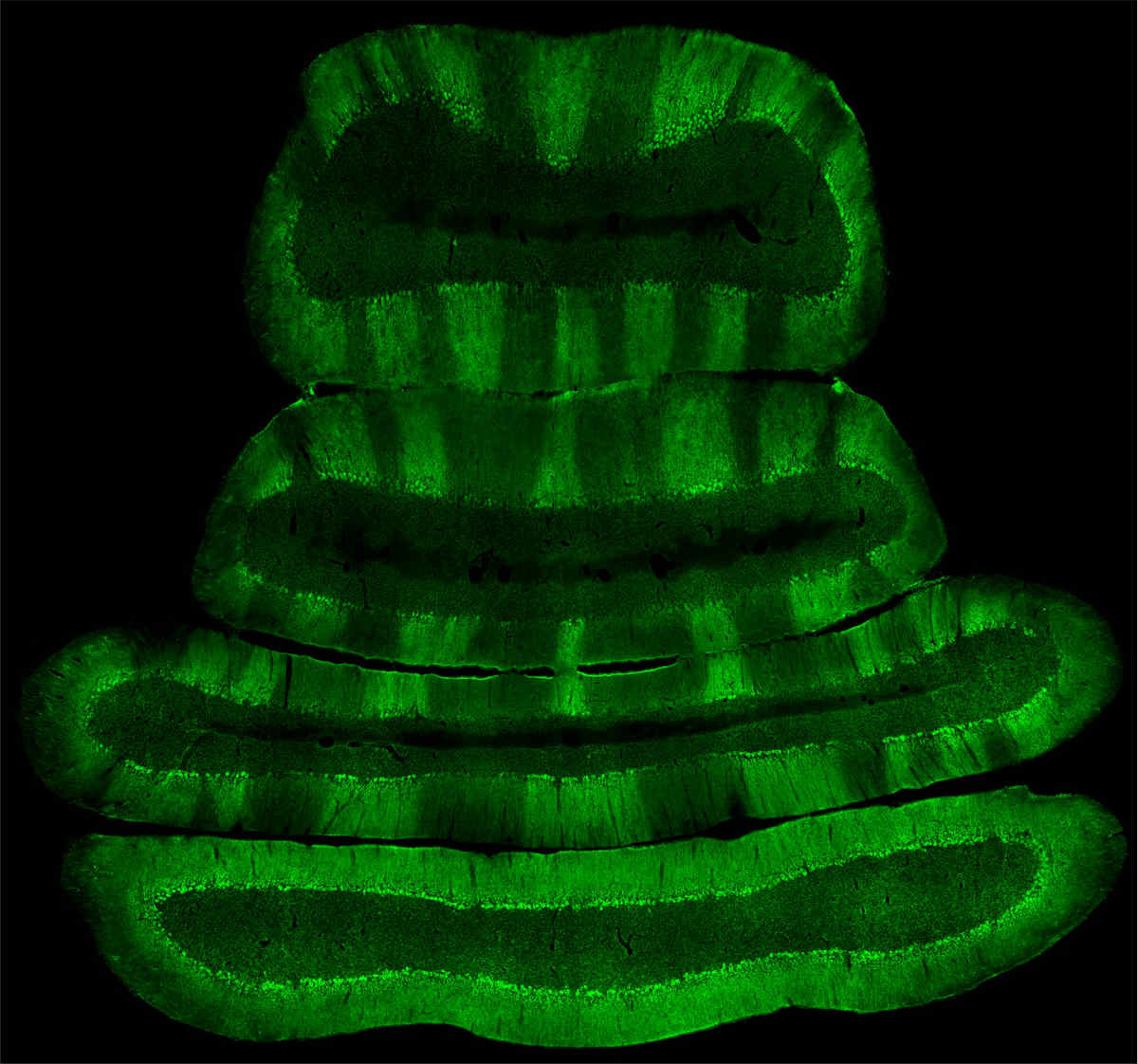
This cross section of a pigeon cerebellum shows the slices, or Zebrin stripes, each responsible for a different function.
For decades, neuroscientists thought they had it right. In the human brain, the cortex is responsible for complex thought and actions, and the cerebellum, a small structure at the base of the brain, is responsible for motor control.
But the role of the cerebellum is much more complex than that. In fact, it also plays a role in language, emotion, and planning behaviours. And understanding the cerebellum also has important implications for understanding many modern diseases, including Alzheimer's, autism, multiple sclerosis, vertigo, and addictions, to name a few.
"The intricacies of motor planning and motor learning also take place there." explained Doug Wylie, professor in the Department of Psychology. "When people think of the brain, they think of cortex, or the part on top. But it turns out that the cerebellum is home to 75 to 80 percent of the neurons in your brain."
Wylie focuses his research on understanding just how the cerebellum functions. The end goal of this work is to improve diagnosis and rehabilitation protocols for many diseases affecting the brain.
"The cerebellum is not organized in a modular way, like the cortex is," said Wylie. "Instead it is organized in slices, like a loaf of bread, called Zebrin stripes. Different slices are responsible for different functions. While we know that they are involved in motor learning, exactly what they do differently is what we hope to find out."
Wylie and his research team use birds as models, since both birds and mammals have highly developed cerebellums that are organized in the same way. "The more we understand about the way the cerebellum is organized, the more we'll understand about what happens when something goes wrong."
Wylie received nearly $600,000 in research funding from the Canadian Institutes of Health Research to continue his work in this area.